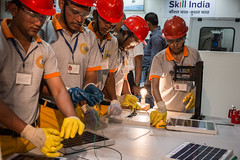Making Labor Markets Work for the Youth : Guiding Principles - Infographic
The infographic highlights the growing number of young people entering the workforce and the need for labor markets to adapt to accommodate them. It also emphasizes the disproportionate impact of poor labor market conditions on youth compared to adults, and the importance of addressing this issue to ensure a sustainable future for all.




